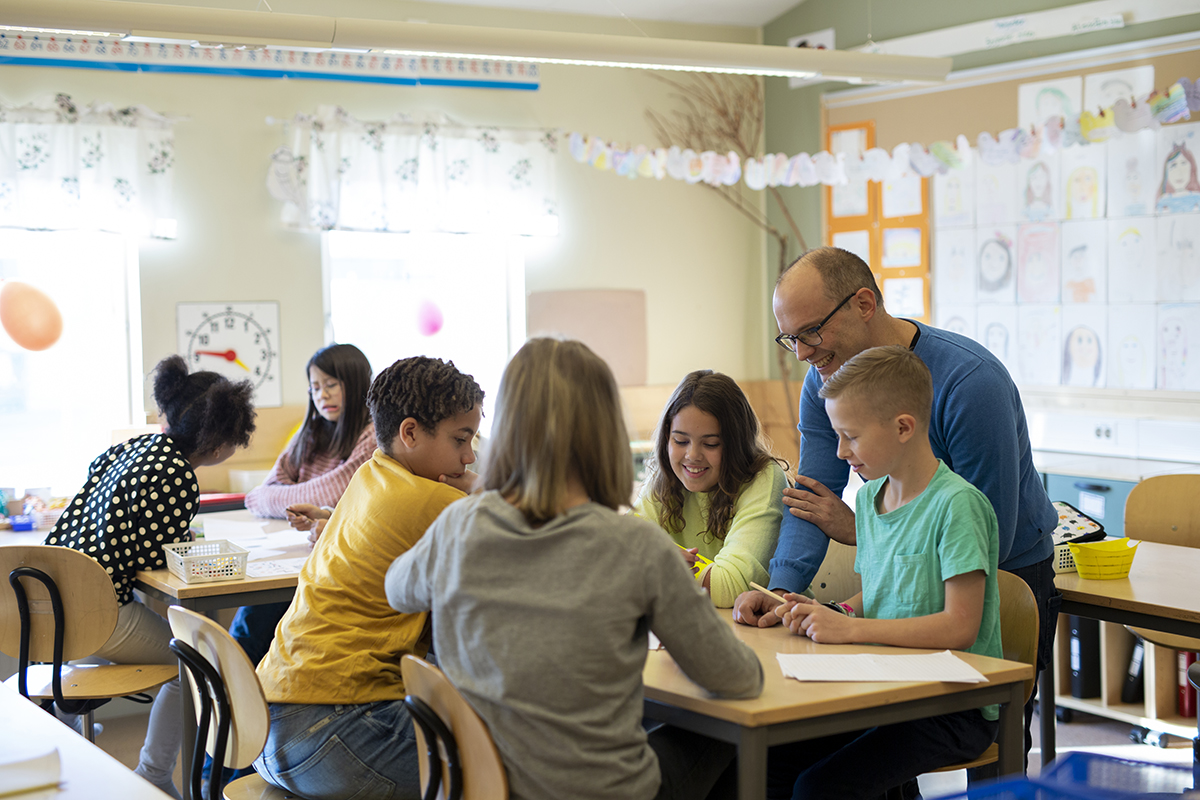Can you imagine a classroom where students not only compete for the best performance, but help each other to achieve common goals? This is the power of cooperative learning, a pedagogical approach that transforms school dynamics. More than just improving academic performance, it promotes essential social skills, fosters respect for diversity and creates a sense of shared responsibility. In this article, you will discover how this methodology can revolutionize the way your students learn and develop.
The key to educational learning in the classroom
Cooperative learning is an educational approach that emphasizes collaboration among students. Rather than fostering individual competition, it promotes teamwork, where each member’s success depends on collective effort. Students are grouped into small, heterogeneous teams, with specific tasks for each. This generates an environment of mutual support, where each member knows that his or her contribution is fundamental to the group’s progress. This approach fosters not only academic learning, but also skills such as conflict resolution, leadership and communication.
Strategies for fostering effective collaboration among students
One of the most powerful features of cooperative learning is the assignment of roles within groups. By having specific roles, students better understand how their work impacts collective success. Some of the most common roles are:
- Secretary: Organizes information and keeps track of assignments.
- Spokesperson: Presents the group’s results to the class.
- Coordinator: Facilitates everyone’s participation and ensures smooth collaboration.
- Controller: Ensures that everyone fulfills his or her responsibilities and respects speaking turns.
These roles help each member feel responsible for the group and understand the importance of their collaboration for common success.

Effective Techniques for Implementing Cooperative Learning in the Classroom
There are several techniques for integrating cooperative learning into your daily teaching. These activities promote interaction and dialogue, allowing students to share ideas and solve problems together. Some of the most commonly used include:
- Structured Dialogue: Encourage discussions that allow you to exchange points of view and generate new ideas.
- Problem solving: Students collaborate to find solutions to specific challenges.
- Collective knowledge construction: Activities such as debates or “pencil-in-the-middle” stimulate working together to generate new perspectives.
- Peer assessment: Students review and provide feedback on each other’s work, fostering mutual learning.
These techniques not only help students learn concepts, but also develop critical skills such as argumentation, decision making and critical thinking.
Benefits of teamwork
Cooperative learning has profound and lasting benefits for both students and teachers. Among the most significant include:
- Improved academic performance: Students are motivated by working together and learning from their peers.
- Developing social skills: Collaboration fosters empathy, conflict resolution and effective communication.
- Fostering inclusion: Teamwork allows all students to feel valued, regardless of their individual abilities.
- Increased motivation: Shared responsibility and a sense of ownership create an environment where students are more engaged in their learning.
For teachers, mastering this approach requires training and practice, but the results in terms of engagement and academic success are highly positive.
A more collaborative and effective classroom
Cooperative learning not only transforms how students interact with content, but also how they relate to each other. By fostering teamwork, shared responsibility and mutual respect, this methodology prepares students for the challenges of the future. Although its implementation can be challenging at first, the benefits to students’ motivation, performance and social skills make it worth the effort. As a teacher, by incorporating cooperative learning, you will be creating a more inclusive, dynamic and effective environment for all your students.
Boost your career
If you are interested in cooperative learning and its impact on education, our Master in Education With a Specialty in Higher Education will provide you with the tools to apply innovative pedagogical approaches to your teaching. This program prepares you to improve academic performance and foster a collaborative environment, boosting your professional development and that of your students.
Learn more about the Master in Education With a Specialty in Higher Education.
Sources:
How to apply cooperative learning in the classroom.
The cooperative learning method and its application in the classroom.

